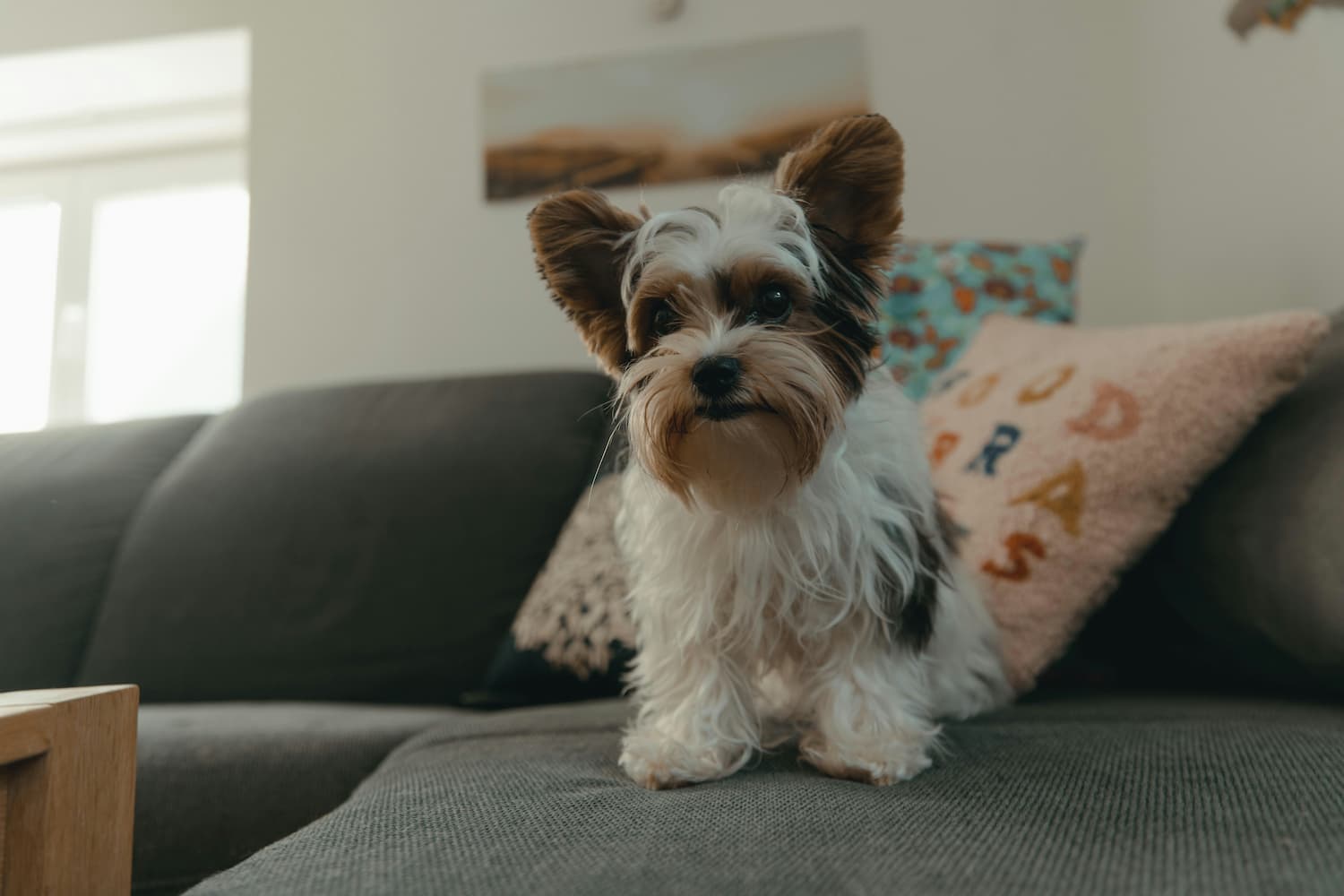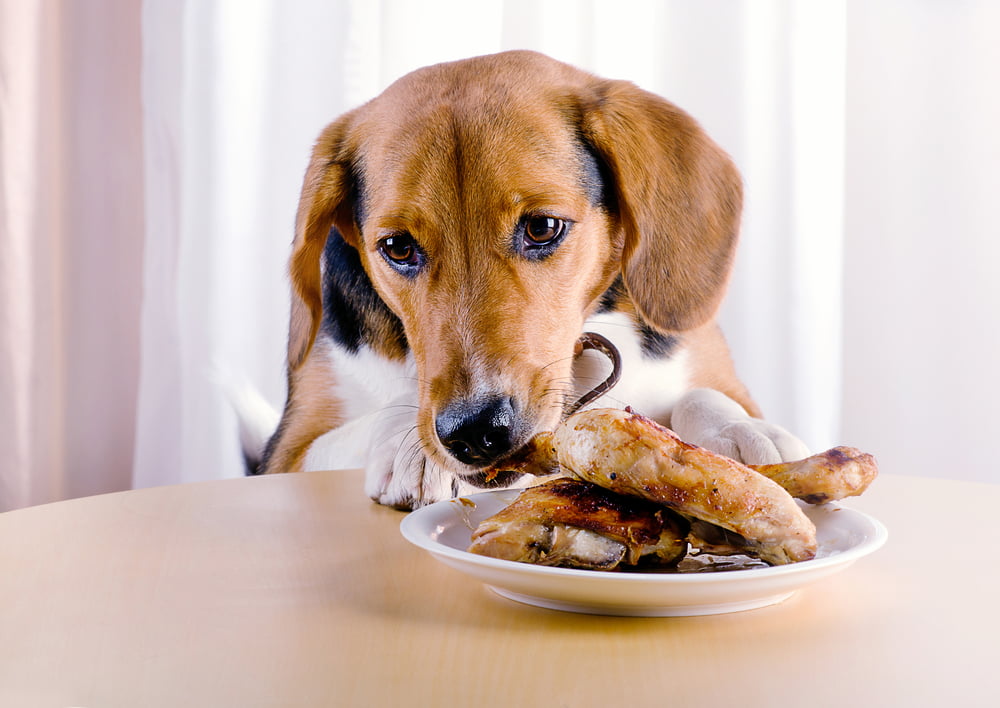You’re in the kitchen crunching on a fresh, sweet carrot when you feel a pair of eager eyes staring up at you. Your furry friend is clearly interested in your snack, which leads you to ask: can dogs eat carrots? It’s a common question for dog owners looking for healthy, low-calorie treats to share. The good news is that not only are carrots generally safe for dogs, but they also offer several nutritional benefits. This comprehensive guide will explore everything you need to know about feeding carrots to your canine companion, from the advantages to the proper ways to serve them.
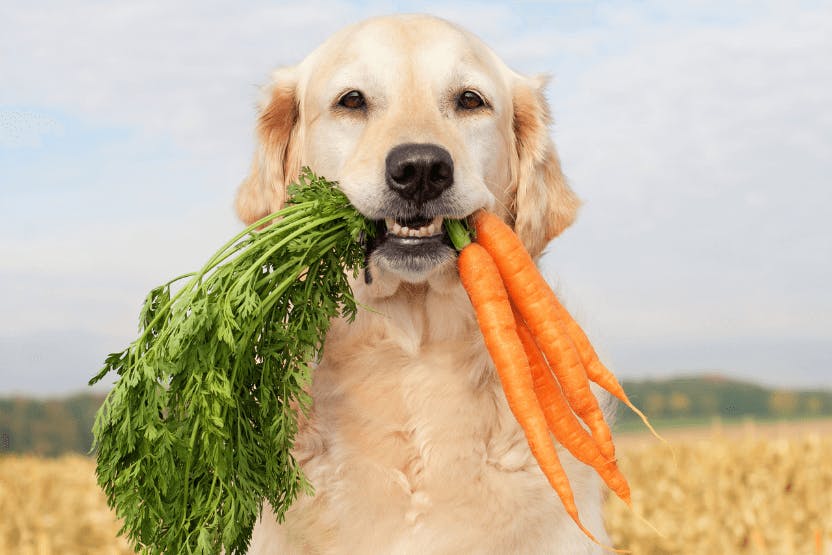
Are Carrots Good for Dogs?
Yes, carrots are an excellent and healthy treat for most dogs. They are low in calories and fat while being packed with beneficial nutrients. This makes them a fantastic alternative to many commercial treats. The answer to “can dogs eat carrots” is a resounding yes, primarily because of their nutritional profile:
Given these benefits, it’s clear that carrots can be a valuable addition to your dog’s diet in moderation.
Risks of Feeding Carrots to Dogs?
While carrots are overwhelmingly positive for most dogs, there are a few potential risks to be aware of:
Finally, while the carrot plant’s taproot (the edible carrot) is safe, some related plant parts (flowers, greens) can cause skin irritation in sensitive people or animals — garden hygiene matters. If your dog has a medical condition (diabetes, pancreatitis, or food sensitivities), ask your vet before adding new foods.
Can Dogs Eat Raw Carrots?
Absolutely. Can dogs eat raw carrots? Yes, many dogs enjoy the satisfying crunch of a raw carrot. It’s excellent for their teeth. However, to prevent choking, always wash them first and cut them into small, manageable sticks or chunks that are appropriate for your dog’s size. Supervise your dog while they enjoy this crunchy treat.
Can Dogs Eat Cooked Carrots?
Yes, dogs can eat cooked carrots. In fact, cooking (boiling or steaming) softens the carrot, making it easier to chew and digest, which is ideal for senior dogs or puppies with sensitive teeth. The cooking process also makes the beta-carotene easier for the body to absorb. Ensure the cooked carrots are plain—no salt, butter, oils, garlic, or onions added, as these can be harmful to dogs.
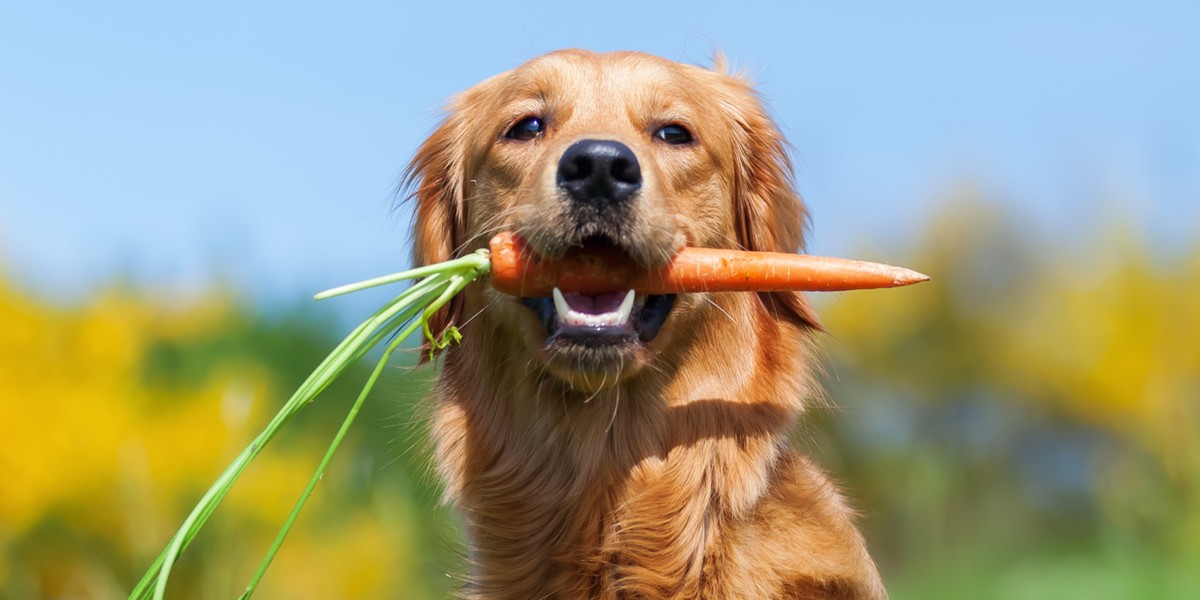
Can Dogs Eat Frozen Carrots?
Yes, frozen carrots can be a fantastic treat, especially for teething puppies. The coldness helps soothe their sore gums. They also provide a long-lasting, crunchy chew for adult dogs. As with raw carrots, it’s safest to offer frozen carrots in sizes too large to be swallowed whole (a large chunk for a big dog) or to cut them into smaller pieces for smaller breeds to minimize any choking risk.
How Much Carrot Can My Dog Eat?
When considering can dog eat carrot treats, moderation is key. Carrots should be treated as just that—a treat—and should not make up more than 10% of your dog’s total daily calorie intake.
A good general guideline is to offer only a few small pieces of carrot per day. The appropriate amount depends on your dog’s size:
Introduce carrots slowly into your dog’s diet to see how they react. If you notice any digestive upset, like gas or diarrhea, you may be feeding too much and should reduce the portion size.
How to Safely Serve Carrots to Your Dog?
To ensure your dog enjoys their carrot treat without any issues, follow these simple preparation steps:
Follow the above steps, you can confidently answer “can dogs eat carrots raw or cooked?” with a yes, knowing you’re doing it safely.
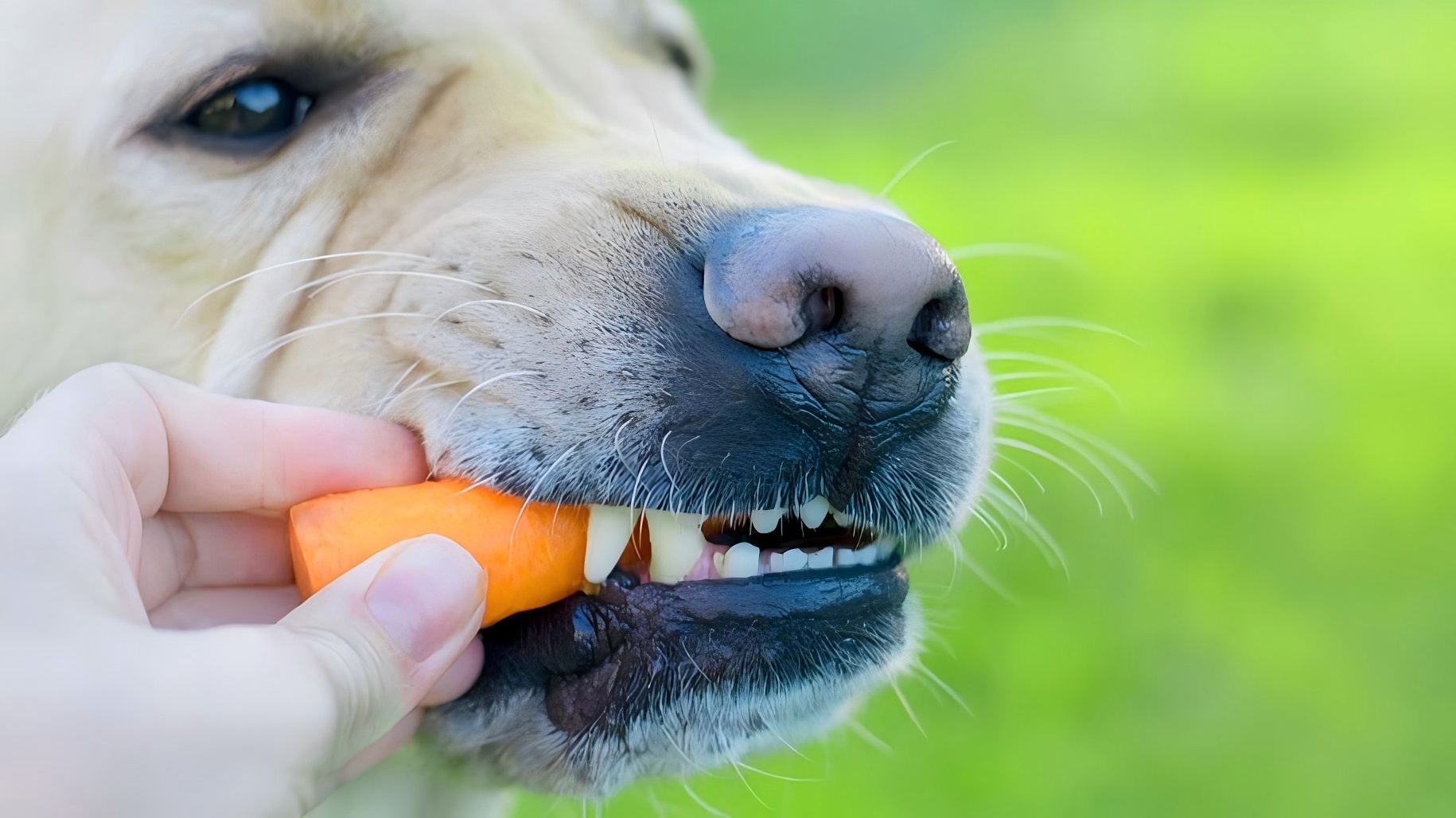
Conclusion
So, can dogs eat carrots? Absolutely. Carrots are a nutritious, low-calorie, and crunchy treat that most dogs love. They offer valuable vitamins, support dental health, and can aid digestion. The key to feeding them safely lies in simple preparation: always wash and cut them into appropriate sizes to prevent choking, and serve them in moderation as part of a balanced diet. Whether raw, cooked, or frozen, carrots can be a wonderful and healthy snack to share with your canine best friend.
FAQ
Do carrots clean dogs’ teeth?
Yes, to an extent. The abrasive texture of a raw, crunchy carrot can help scrape plaque off a dog’s teeth as they chew, acting like a natural toothbrush. However, it is not a substitute for regular veterinary dental care or brushing your dog’s teeth. Think of it as a helpful supplement to a good oral hygiene routine.
Can too many carrots upset a dog’s stomach?
Yes. Overfeeding carrots can cause diarrhea, gas, or loose stools due to high fiber and sugar content. Stick to small amounts and watch your dog’s stool and weight. If upset occurs, stop carrots and consult your vet.
What is the healthiest vegetable for a dog?
Several vegetables are nutritious for dogs; commonly recommended options include carrots, green beans, cooked pumpkin (plain), and peas — each offers different nutrients. The “healthiest” choice depends on your dog’s needs (weight control, digestion, calories). Always serve plain and in moderation, and prioritize a complete dog food formulated for your dog’s life stage.

